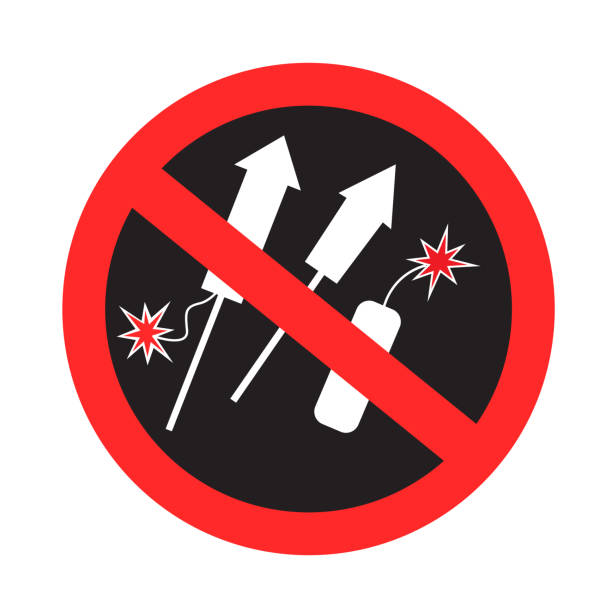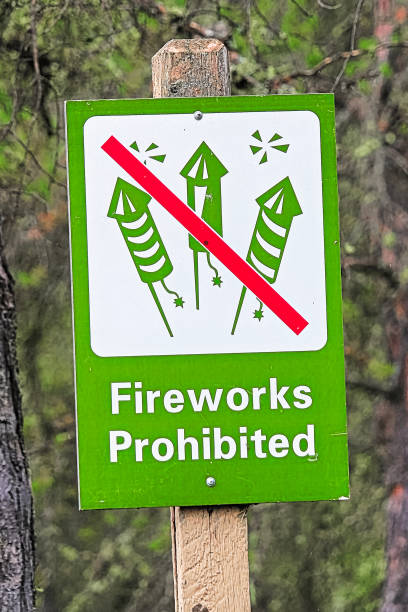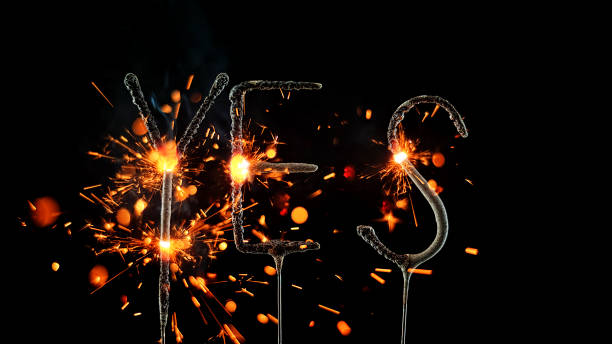Fireworks bring excitement and beauty to Kenyan celebrations, but they also carry risks if not used responsibly. For this reason, the government has put laws in place to regulate their use. At Fireworks Kenya, we ensure that our clients understand the safety and legal frameworks around fireworks. This guide breaks down how to obtain a fireworks permit in Kenya, what constitutes legal fireworks use, and the key fireworks laws you need to follow. By ensuring customers know the rules, we facilitate our clients in having breath-taking displays while keeping their events safe and compliant.
Why are fireworks regulated in Kenya?
- Fireworks are not just mere entertainment. This is because they involve explosives. Without rules, they can lead to injuries, property damage, noise pollution, and even fires. Regulations serve three main purposes:
1. Safety of people
Improper handling of fireworks can cause burns, eye injuries, and accidents. By requiring permits, the government ensures that only qualified individuals handle large displays.
2. Protection of property and environment
Kenya’s cities are densely populated. Uncontrolled fireworks could damage property, spark fires, or harm wildlife. Regulations prevent such risks by limiting where and how fireworks can be used.
3. Public order
Fireworks produce noise and light that could disturb communities. Legal restrictions ensure displays happen at appropriate times and places, balancing celebration with public peace.
Fireworks laws in Kenya
The use of fireworks is governed under Kenyan law through a combination of public safety, explosives, and environmental regulations. These include The (Explosives) Fireworks Act and The Firearms Act. While smaller fireworks such as sparklers and fountains may be used privately, larger aerial displays are strictly controlled.
Key provisions include:
• Fireworks classified as explosives require authorisation before use.
• Large public displays can only be conducted by licensed pyrotechnicians.
• Fireworks must not endanger lives, property, or wildlife.
• Noise levels and timing of displays are regulated, especially in urban centres.
• Fireworks cannot be imported, sold, or distributed without proper licensing.
In short, while fireworks are allowed, they are not a free-for-all. Understanding these fireworks laws keeps both event organisers and individuals on the safe side of the law.

Obtaining a fireworks permit in Kenya
For anyone planning a medium to large display, a fireworks permit in Kenya is mandatory. The process usually involves several steps:
1. Application to local authorities
You must notify the county government where the event will take place. In Nairobi, for instance, applications are made to county officials responsible for security and public order.
2. Clearance from security agencies
Because fireworks are explosives, the Kenya Police Service and sometimes the Ministry of Interior must approve their use. They assess the risks and ensure the event has proper crowd and fire safety measures.
3. Venue assessment
Authorities may inspect the proposed site to confirm it has enough open space, emergency access, and fire control measures. Venues near airports or hospitals face stricter scrutiny due to safety and noise concerns.
4. Engagement of licensed professionals
A permit often requires proof that a certified pyrotechnics company will conduct the display. These experts know how to store, transport, and ignite fireworks safely.
5. Payment of fees
A small fee is usually charged for processing the permit. Costs vary depending on the county and the scale of the event.
Without completing these steps, hosting a fireworks show is considered illegal.
Legal fireworks use for individuals.
Not all fireworks require a permit. For small private gatherings, legal fireworks use allows individuals to buy sparklers, fountains, and small cakes from licensed vendors. These items are considered low-risk when used under adult supervision.
However, even for small items, safety rules apply:
• Fireworks must be lit outdoors in open spaces.
• Children should never handle fireworks without supervision.
• Items should only be purchased from licensed sellers to avoid dangerous counterfeits.
For larger items like rockets and professional cakes, even individuals need a permit or must hire a licensed provider.

Who enforces fireworks laws in Kenya?
Enforcement is handled jointly by several bodies:
• County Governments – Issue permits and enforce local restrictions.
• Kenya Police Service – Oversee public safety and crack down on illegal fireworks use.
• National Environment Management Authority (NEMA) – Regulates environmental noise and pollution caused by fireworks.
• Kenya Civil Aviation Authority (KCAA) – Ensures fireworks near airports do not interfere with air traffic.
This multi-agency approach ensures fireworks remain a joy to watch, not a public hazard.
Penalties for illegal fireworks Use
Using fireworks without a permit or purchasing from unlicensed dealers can attract legal consequences. Penalties include:
• Fines – Offenders may be required to pay substantial amounts depending on the severity of the violation.
• Confiscation – Fireworks bought illegally may be seized and destroyed.
• Imprisonment – In serious cases, offenders risk jail time for endangering lives with explosives.
These penalties emphasise the seriousness of adhering to fireworks laws in Kenya.
Fireworks and environmental concerns
Beyond legality, fireworks also raise environmental issues. Authorities consider:
• Noise Pollution – Fireworks can disturb neighbourhoods, hospitals, and animals. Time limits often restrict use to evening hours.
• Air Quality – Fireworks release smoke and chemicals. While occasional displays are manageable, frequent use is discouraged.
• Wildlife Disturbance – In areas near forests, lakes, or reserves, permits are harder to obtain to protect wildlife.
Balancing cultural celebrations with environmental protection is part of the regulatory framework.
Practical tips for staying compliant
Work with licensed vendors
Only buy fireworks from authorised suppliers. They not only provide safe products but also guide you on whether a permit is required.
Hire professionals for large events.
A licensed pyrotechnic company knows how to obtain permits, handle logistics, and stage a safe display. This saves you stress and keeps your event legal.
Apply early for permits.
Don’t wait until the last minute. Fireworks permits in Kenya take time to process, especially during festive seasons like December. Early planning avoids disappointment.
Stay informed about local rules.
Each county may have slightly different enforcement practices. Always check with your local government for updated requirements.
Our Take
Fireworks are a spectacular part of Kenyan celebrations, but their use is not without rules. Understanding the requirements for a fireworks permit in Kenya, knowing what qualifies as legal fireworks use, and respecting existing fireworks laws, you can ensure your event runs smoothly and safely. Trust us at Fireworks Kenya to help you get the best legal advice and permits for your events. Moreover, we ensure that your event is compliant and safe, without affecting the fun and thrill. We are located on Moi Avenue, opposite Nairobi Sports House. You can also find us across our various outlets across the country.

